blog
Book Review: Un Po Mio by Marzio Toniolo
The Po River is the largest Italian river. It is located in the north of the peninsula, and is at the origin of one of the most active and richest areas on the planet: the Po Valley. The Po river has always represented a reference for the Po Valley, for its culture and its inhabitants. The river, with its riches and its inexorable flow, is also the metaphor of life. Of the trip.

Po River ©Marzio Toniolo
“Federico and his dog enjoyed the deserted sand, blowing away the heat with a dip in the Po.”
Un Po Mio is a journey that, from 1 to 14 July 2021, took place along the Po River. It went from Turin to Venice, 700 km by kayak for about two weeks of navigation and without pre-established stops. Marzio Toniolo, the photojournalist, slept in a tent and docked where most appropriate to meet those who live and love this river. And, precisely to “immerse” himself more in the social context of the river people and take advantage of the casual hospitality, he chose to leave without money.
“From the first day I realized that the particularity of the meetings with people, although rare, were far superior to my expectations. However, it has never been easy to reconcile physical activity, which involved about 50 km of walking on the river a day, with photographic activity, precisely due to the need to meet certain pre-established deadlines which, if not respected, would have compromised the arrival at destination within the established times. For this reason I had to sip and select the approaches with the people of the river, limiting myself to collecting the most interesting stories and, consequently, photographing the protagonists. The result was a totally random visual work and very often dictated by the sensations of the moment.”
[Marzio Toniolo]

Po River ©Marzio Toniolo
“Christian, a silent man, with the gruff and corsair appearance of someone who was forged by water, as well as guardian of the entire pier. He studied me for a while, then granting me everything as one does with important guests and giving me not only a night in the shack, but also his company.”
“The long descent of the Po meant that I spent much of the time in total solitude, far from inhabited centers and from any anthropic element.
At the same time I tried to establish connections with the few people I met, especially in some moments of difficulty due to the exhaustion of food and water supplies, to transhipments to overcome the countless dams of the Piedmontese stretch or when, on a daily basis, I was looking for suitable and safe places for overnight stay.
My requests for help occurred completely by chance and were always satisfied, allowing me to meet incredibly hospitable and welcoming people, especially those viscerally linked to the river.
In some cases, the initial distrust of my interlocutors was swept away by the common and mutual desire to get to know each other and listen to each other.”
[Marzio Toniolo]
The idea for this project was born from the desire to tell, through images and with his diaries, the story of a solo journey in the name of eco-sustainability and respect for places, and to discover the populations and traditions of this slice of Italian territory so as wonderful as it is underrated; sometimes, unfortunately, mistreated.
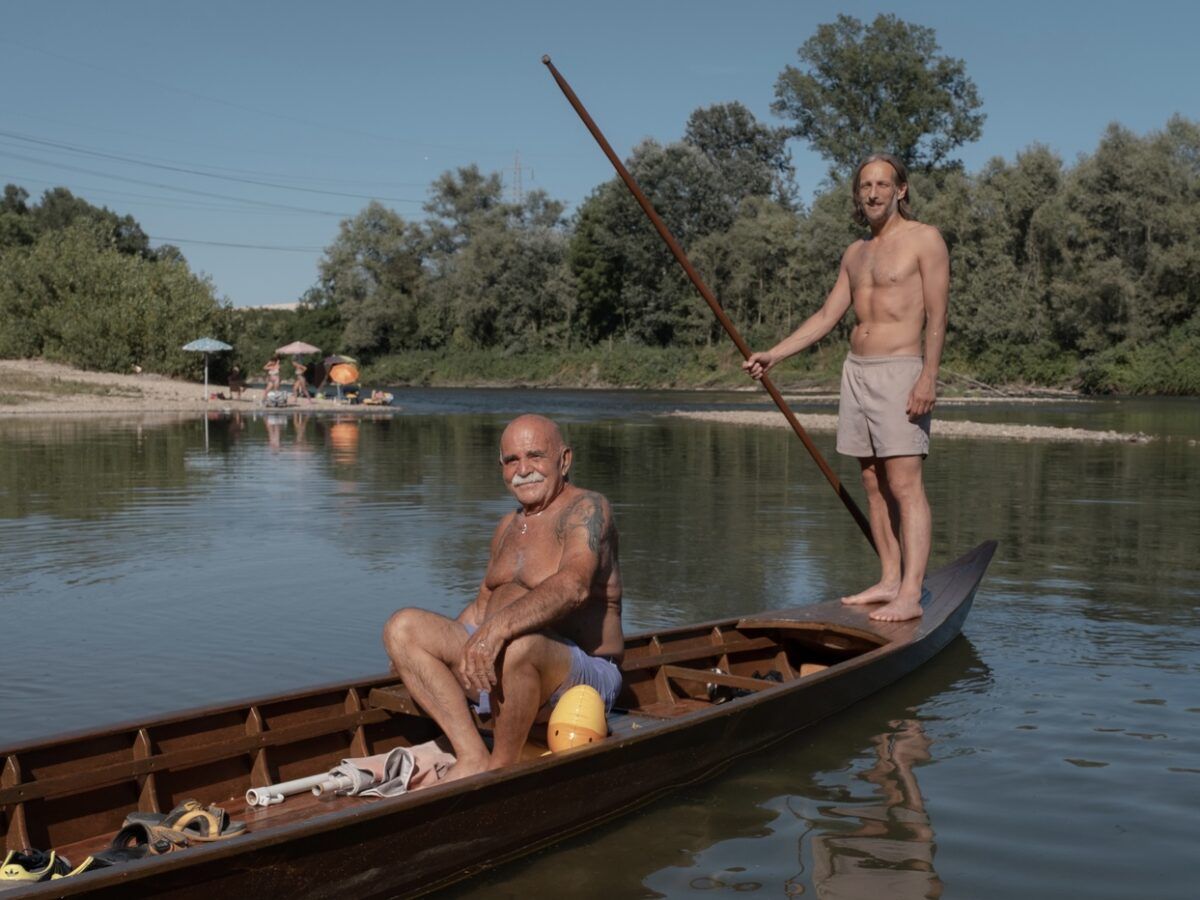
Po River ©Marzio Toniolo
“Arriving on an old wooden pirogue, two men who looked like Charon and Virgil gave me a drink and a plate of anchovies in oil, devoured amidst stories of distant journeys and the river of that time.”
The valorization of this river, close to where Marzio Toniolo grew up (and still lives), has an ethical, cultural and artistic connotation. Ethical, because the primary purpose of the feat was to raise funds and publicize a non-profit association dedicated to the late Luca Noli, a person dear to Marzio. Cultural, because Marzio is a man of the river and Un Po Mio wanted to try to bring attention to the charm of these environments and how interesting it could be to rediscover its peculiarities. Artistic, because Marzio set out to fulfill the ethical and artistic purposes through photography. The resulting work is characterized by his poetics which, precisely, “flows” between the formal canons of the modern portrait and Marzio’s sensitive approach. Shy, like the appearance of the people portrayed, and melancholic, like the state of the places that are only apparently inhospitable and in which all the protagonists of this world at the limits of allegory find comfort.
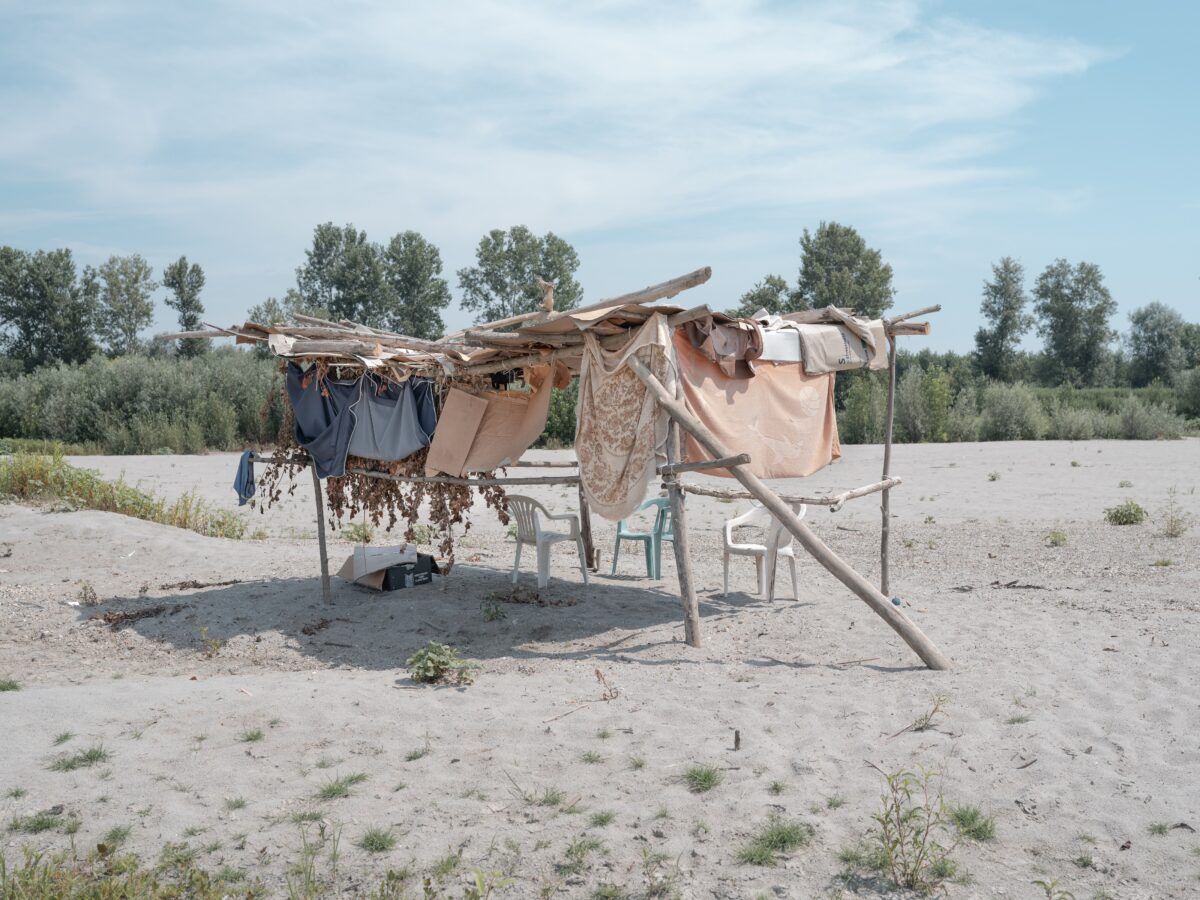
Po River ©Marzio Toniolo
“There were also those who had never seen this place and maybe, tomorrow, they will even feel it a bit like theirs.”
“The longest river in Italy should be a heritage; anthropologically speaking, however, we are now saying that it is a sewer. By discrediting it we removed it. The Po is something more alive than us, which in a few million years has filled with sand the sea that occupied the plain in the Pliocene: it is beautiful and desolate like a desert. Nobody goes there. Nobody goes on the sand anymore; yet even if you go alone, at vespers, you don’t feel alone: there are the seagull, the heron, the cormorant, the catfish. It makes little fuss when a flood threatens, then it returns to the riverbed and is never heard from again. So the Po remains deserted, and it is wonderful. Yet the river was a source of food, the kitchens of the Campi are full of freshwater fish. However, the water is still transparent and is no more dirty than famous seaside resorts. The Po is a forgotten, pagan god, full of silence and wonder.”
[Mauro di Vito]
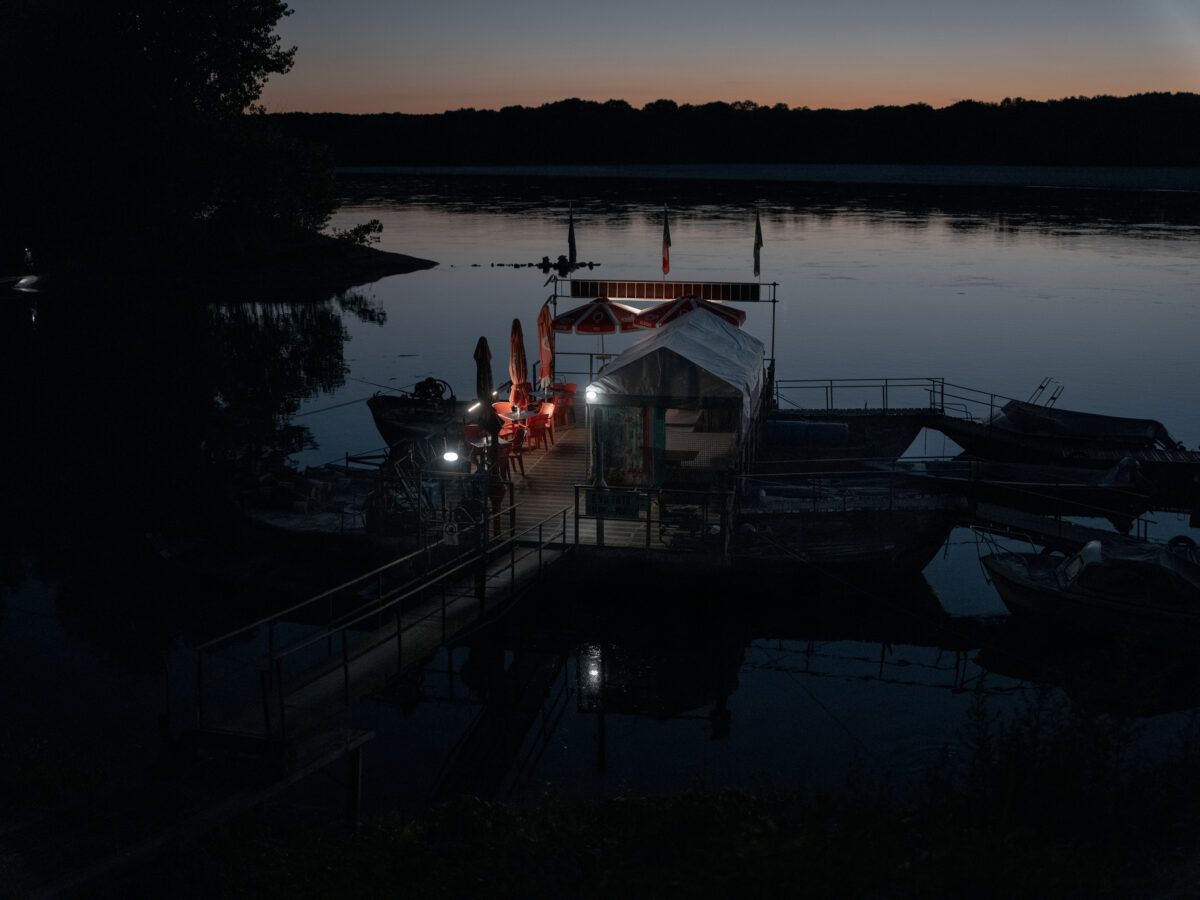
Po River ©Marzio Toniolo
Marzio is a traveller, as every reportage photographer should be, who manages to tell, with few elements, about places and people without transcending the balance between the spatial rules of photography and the instant that cancels time. Un Po Mio should be seen not only from the perspective of personal and moral growth but also as the artistic evolution of the photographer, who abandons the “distance” of street photography in search of that contact which is the point of view between those who see and who are seen. In this sense, the river, flowing between two banks, takes on the same value that photography has in the definition of portrait: the meeting point (or clash, or compromise) between the photographer and his subject.
“My personal relationship with the Po was born, however, from study.
Due to a series of previous events and research, I ended up writing a degree thesis on the topic of the relationship between the Po and the city in the Middle Ages. […]
For the control of the Po, and mainly for the collection of its taxes, not only military clashes took place, but real disputes over diplomas and imperial privileges.
Everyone wanted to have a piece of this incredible economic, but also political, wealth.
Through the study of those papers I therefore rediscovered this great river of ours, with its contradictions, but perhaps also with all its emotional charge. […]
Cremona, the Po Valley and the Po have been linked for centuries and I imagine this relationship as a karst relationship, recurring, but never fully completed.
And maybe this is also the beauty of it.”
[Luca Burgazzi, Councilor for Culture of the Municipality of Cremona – Italy.]

Un Po Mio
by Marzio Toniolo
Published by SelfSelf Books
Curated by Walter Borghisani
Closed format 27×21
pages: 100+cover
Inner paper: Arena Natural Rough 140gr.
Cover: Arena Natural Rough 350gr.
with silkscreen title on cover
Binding: Milled paperback
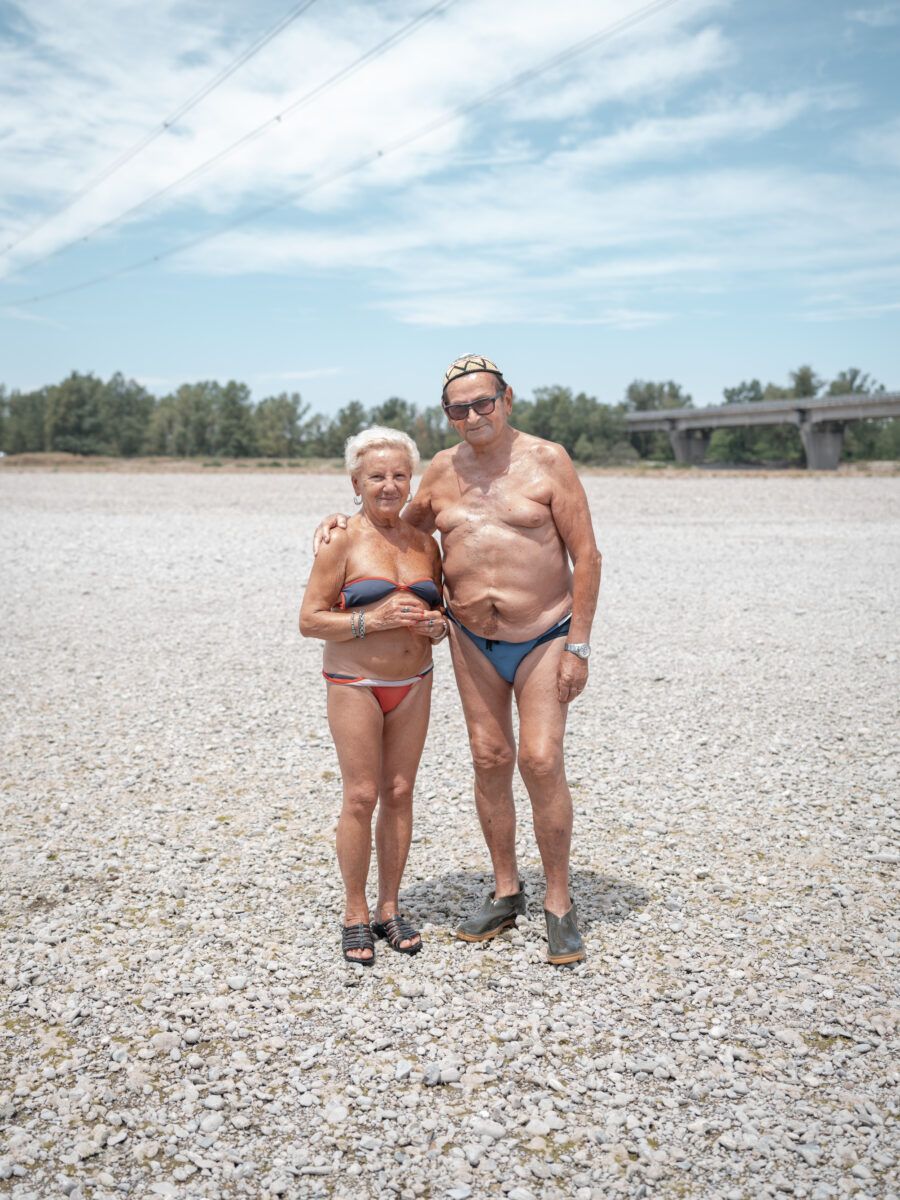
Po River ©Marzio Toniolo
“On my way down I met two elderly people, a month shy of their fiftieth wedding, who go there from Milan as soon as they can to enjoy the intimacy in this corner of the Po Valley world, despite distance and age.”
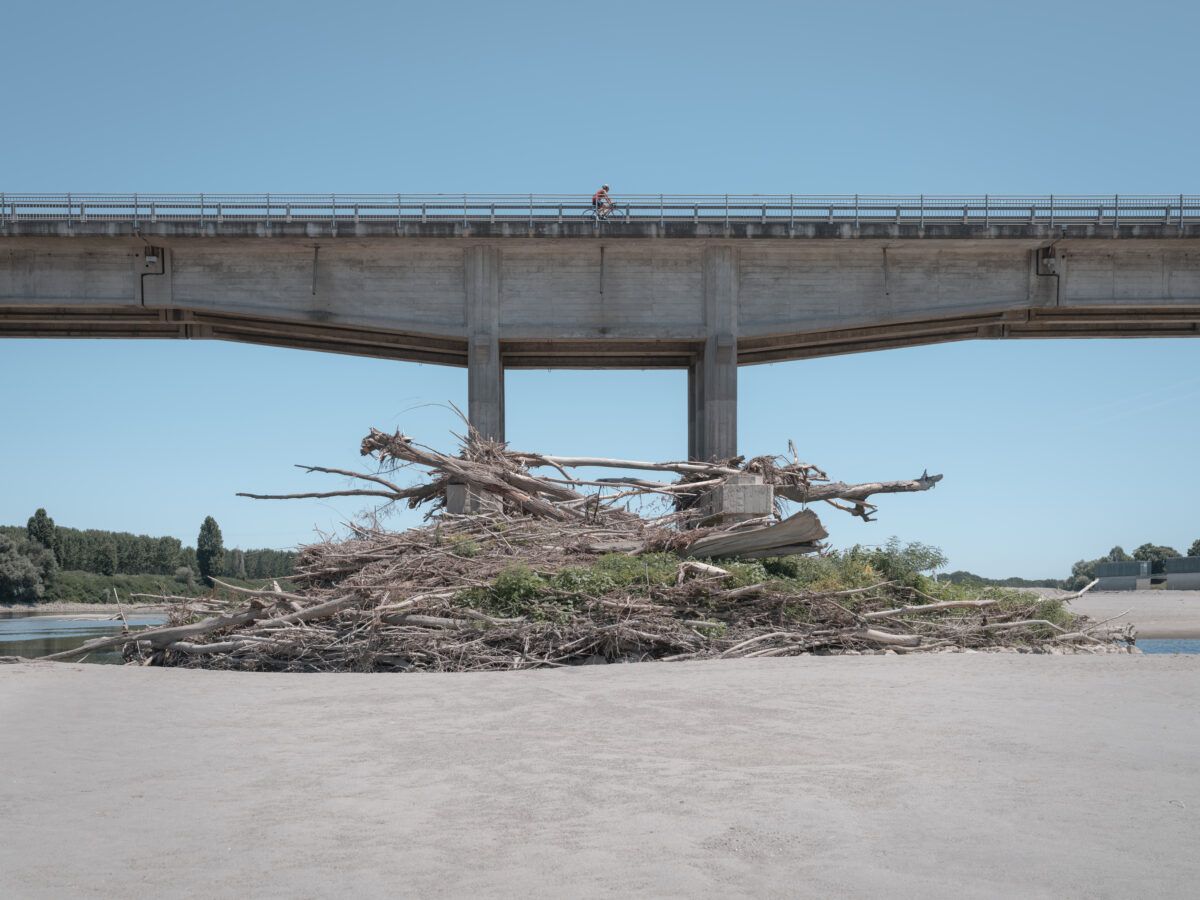
Po River ©Marzio Toniolo
Location: Online Type: Book Review, Documentary, River
Events by Location
Post Categories
Tags
- Abstract
- Alternative process
- Architecture
- Artist Talk
- artistic residency
- Biennial
- Black and White
- Book Fair
- Car culture
- Charity
- Childhood
- Children
- Cities
- Collaboration
- Community
- Cyanotype
- Documentary
- Environment
- Event
- Exhibition
- Faith
- Family
- Fashion
- Festival
- Film Review
- Food
- Friendship
- FStop20th
- Gender
- Gun Culture
- Habitat
- Hom
- home
- journal
- Landscapes
- Lecture
- Love
- Masculinity
- Mental Health
- Migration
- Museums
- Music
- Nature
- Night
- nuclear
- p
- photographic residency
- Photomontage
- Plants
- Podcast
- Portraits
- Prairies
- Religion
- River
- Still Life
- Street Photography
- Tourism
- UFO
- Water
- Zine

Leave a Reply